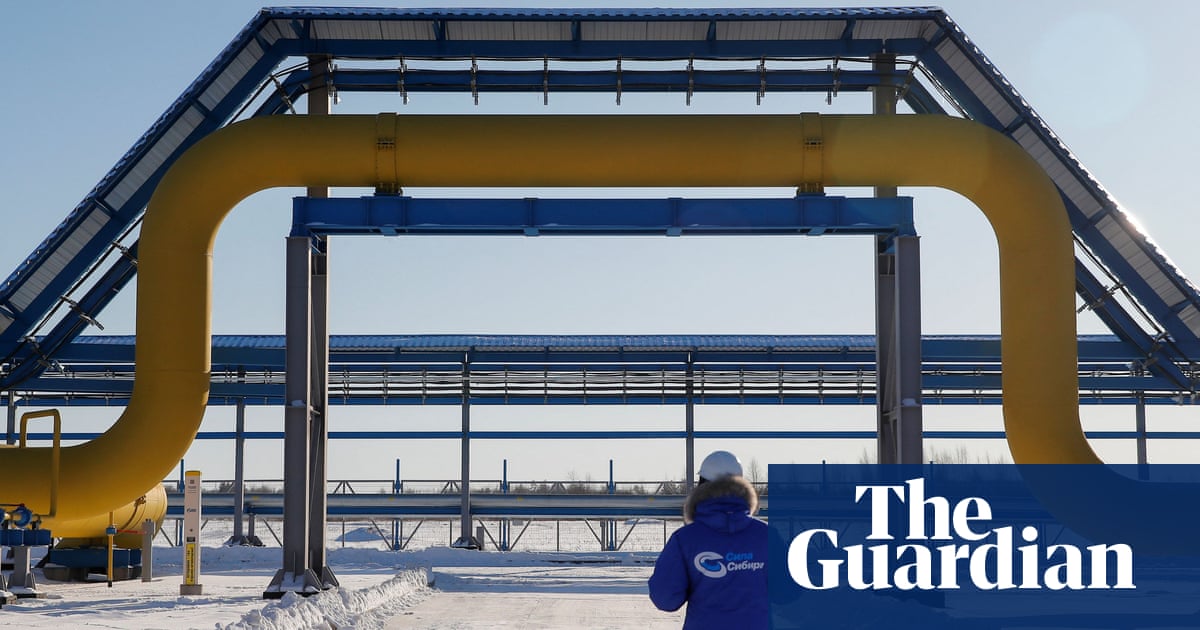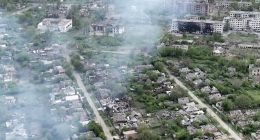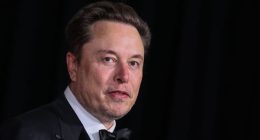
Be ready for a long haul. That was the subtext of Boris Johnson’s message to MPs as he committed to toughening up sanctions against Russia.
The warning to prepare for a “protracted struggle” was both timely and appropriate. There will be no quick knockout blow because Vladimir Putin has had time to prepare and is well dug-in.
On the face of it, it should be an unequal fight. Russia is the world’s biggest landmass but has annual output smaller than Italy’s. Income a head is about a quarter of that in the UK.
Russia’s economy has gone through distinct phases since the collapse of the Soviet Union in the early 1990s: an initial shock treatment that resulted in a savage recession and culminated in a financial crisis in 1998; a strong recovery in the first decade of the 21st century on the back of booming oil and gas exports; and a recent period of stagnation as the failure to diversify the economy took its toll.
After growing by 7% a year on average in the decade leading up to the global financial crash of 2008, the Russian economy was expanding by only about 2% annually in the three years leading up to the pandemic.
The upshot is that – in some respects at least – the economy has not really moved on since the days of the Soviet Union. Russia is still rich in natural resources and human capital but performs sluggishly and has only limited ties with the west.
Dr Holger Schmieding, the chief economist at the investment bank Berenberg, said Russia was a major military power and energy producer, but not a relevant market for most countries. Germany, for example, exports far more to Poland than it does to Russia.
But, as those who have taken on Russia in the past have found to their cost, appearances can be deceptive and there are a number of reasons why a swift victory by the west looks unlikely.
Firstly, Putin has been actively seeking to insulate Russia from the west ever since the invasion of the Crimea in 2014. Western imports of meat, fruit, vegetables and dairy were banned when sanctions were imposed.
Secondly, self-sufficiency has been accompanied by an attempt at diversification, with a deliberate policy pivot towards China. An agreement with Beijing – again in 2014 – paved the way for the construction of the Power of Siberia – a gas pipeline linking the two countries that opened in 2019.
China is the world’s second-biggest economy and its heavy demand for energy has been one of the factor pushing up global energy prices over the past year. Putin has already given approval for Power of Siberia 2.
Thirdly, Russia has used the money received from its oil and gas exports to build up substantial financial defences. Moscow is sitting on foreign currency reserves of about $500bn (£369bn) and, by international standards, has extremely low levels of national debt. Whereas the pandemic has sent the UK’s national debt to GDP ratio spiralling above 100%, in Russia it is below 20%.
That financial firepower may well blunt one of the weapons the west intends to deploy in response to the crisis in Ukraine: a ban on Russia issuing or trading its sovereign debt in London and New York. The amount of bonds Russia needs to sell is relatively small, and only 10% of the total was bought by non-residents last year.
Finally, Putin has some weapons of his own that he may be tempted to use in retaliation against western sanctions. Russia provides 40% of the EU’s oil and coal, and 20% of its gas. It is the world’s biggest exporter of fertiliser and of palladium, a crucial component for the auto industry because it is needed to make catalytic converters.
The Kiel Institute, a German thinktank, says stopping gas exports would knock 3% off Russian GDP while ending oil exports would result in a 1.2% hit. While western countries would be able to source their energy elsewhere, a reduction in supply would inevitably lead to rising oil and gas prices.
Even during the tensest periods of the cold war, the Soviet Union continued to supply energy to the west. Cutting off oil and gas supplies would come at a heavy cost but be an example of a strategy deployed before in the country’s history: scorched-earth policy.
Source: Guardian








